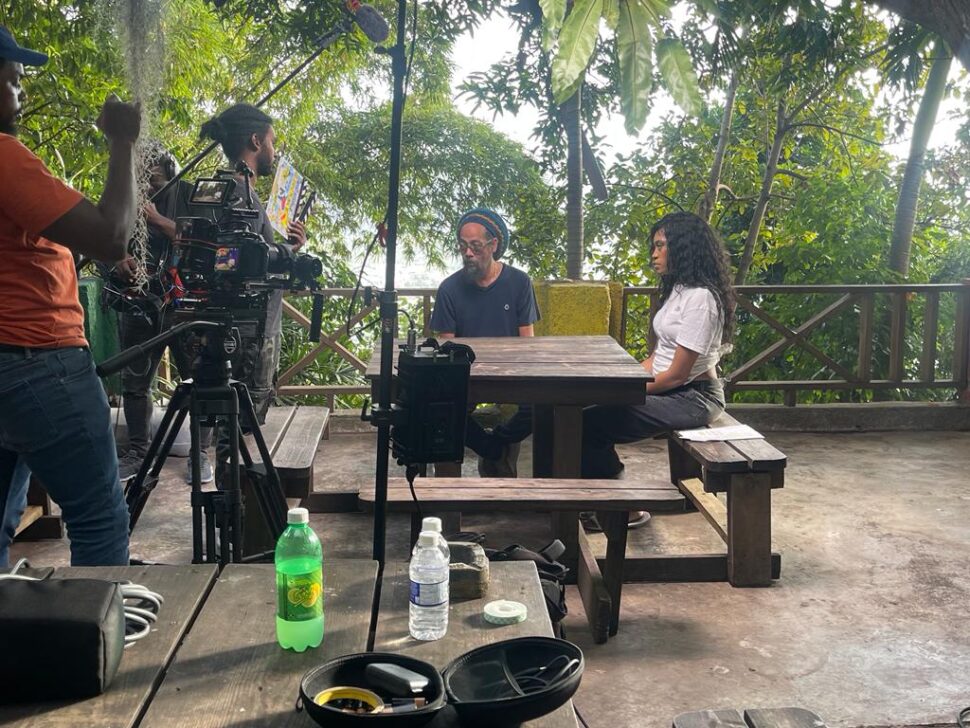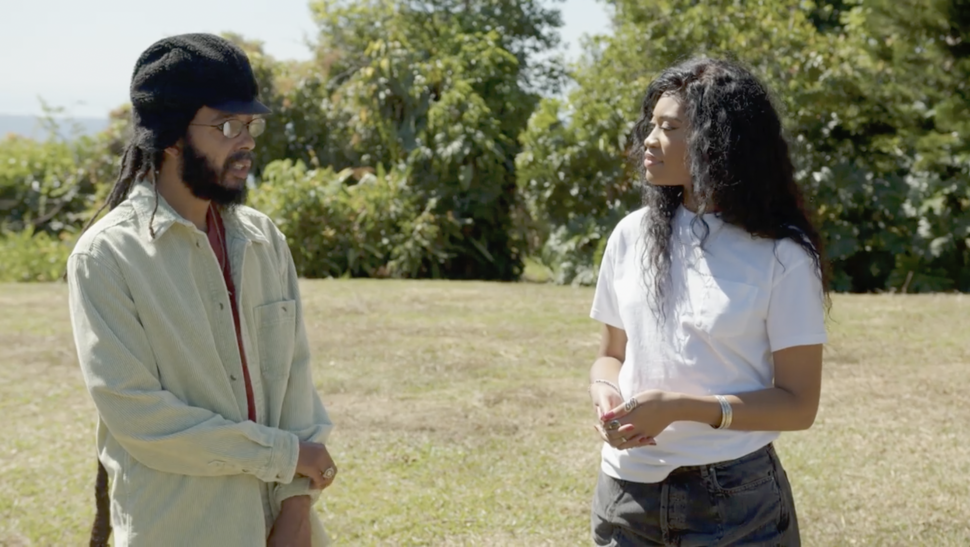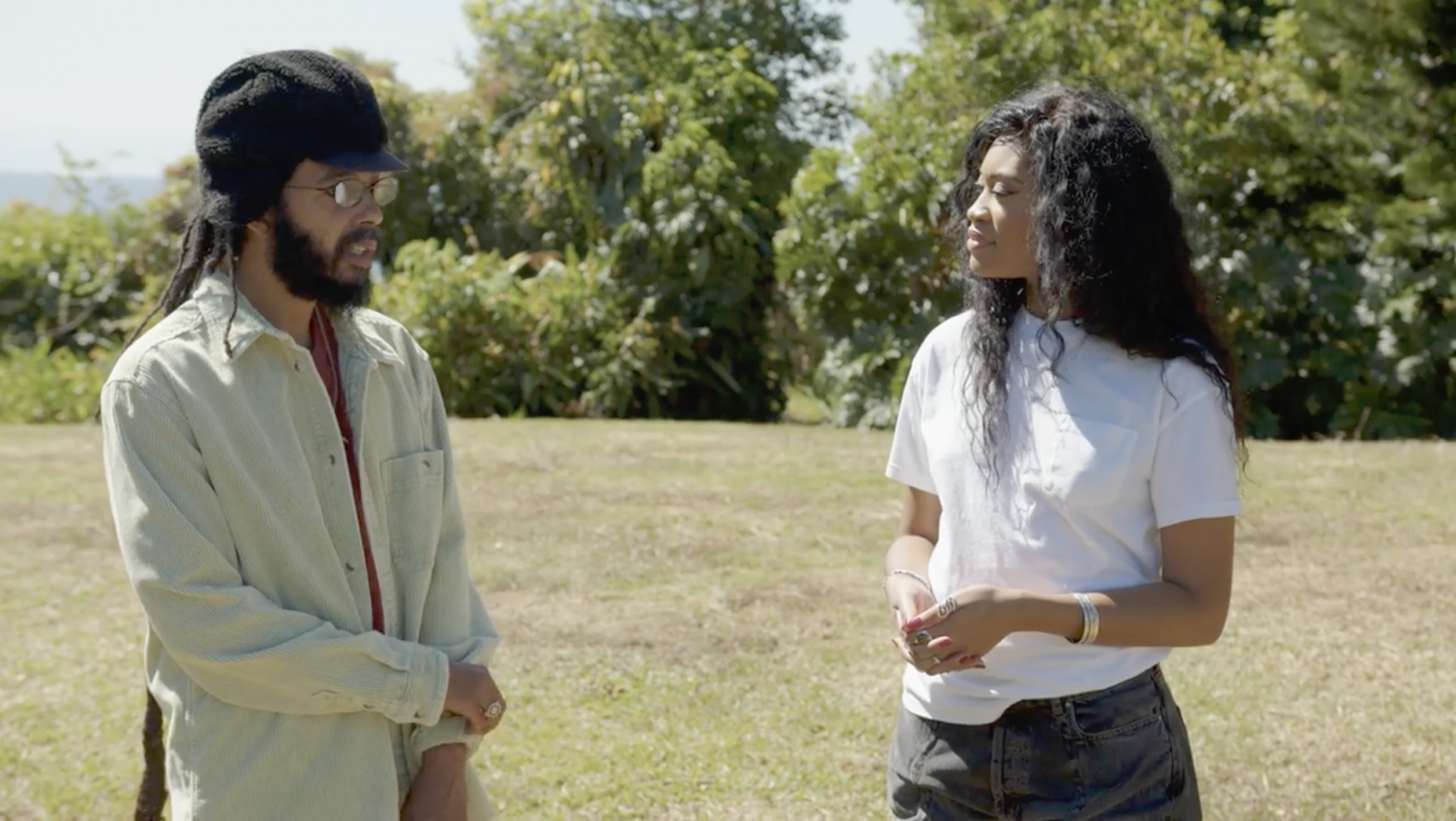International television host and journalist Noel Walker set out to explore the connection between Black American history and reggae month, which originated in Jamaica and is widely celebrated in the Caribbean and diaspora. Unbeknownst to most, February is when both Black History Month and Reggae Month are celebrated.
Music is a universal language that unites people of the diaspora. Although people come from different geographical locations, at our core, they are one. From the food they consume to the rhythms that move through their bodies when a fire song is played, both cultures are very similar.
Walker shares her findings while investing the connection between both celebrations on The Evolution of Reggae Music and Black History, which is now live on theGrio TV. The host and journalist visited five iconic locations in Kingston, Jamaica to tell the story of Reggae’s impact on global Black history.
“I’ve always been a champion of cultural anthropology, truly immersing myself in the cultural environments and homelands to better understand how we differ and how we are the same,” Walker said.

Travel Noire had a chance to catch up with Walker to learn more about her connection to Jamaica as a Black American, why it’s crucial to connect Black American history and reggae music, and her favorite spots in Kingston.
Travel Noire: When was your first time visiting Jamaica?
Noel Walker: 2015 was the first year I visited Jamaica. I headed there to stay with a friend in Kingston. Lord knows I have no idea what kind of love affair this would turn into between me and Jamaica, but it just made sense.
Going into every single establishment and seeing Black leaders, workers, customers or clients everywhere really made me purge for a while and reassess life, my perception of the world and parallel universes. I didn’t know a place like this really ever existed.
TN: What made you fall in love with the island?
NW: The freedom I felt in my skin as a Black person.
We underestimate how much micro-aggressions, passive aggression and navigating life as a person of color really has taken a toll on our mental and spiritual wellness. I unlocked a new level in Jamaica pertaining to Black people. I was so intrigued that people really got to live in a space without racism. On top of that, the food was even better seasoned than soul food.
I loved being so close to the beach and river, parks, waterfalls, and nature, [and] yet, still having city life in Kingston. I was like “yeah, this is my place.”

TN: Can you tell us about your connection to reggae music?
NW: Honestly, it took me a second to tap into that frequency.
Growing up, I would go to parties in New Jersey, my hometown. I used to hate the reggae segment. I wanted to hear the Jersey club music because that was the most fun to dance to.
Once I stayed local in Kingston and began to understand, my mind and body started to pick up things. It was crazy, like an awakening. Once I fully tapped into the frequency of the music, the dance moves, the lyrics, and the dialect, it was better than anything else. I became so passionate about this music experience as a Black woman.
Reggae really speaks to the soul. Dancehall speaks to more out-of-body experiences, and I love both.
TN: Why was it important for you to team up with theGrio TV to explore the connection between Black History Month and Reggae Month?
NW: It was important because I know that people are unaware of Reggae Month. They aren’t aware of the interrelatedness between the two. All people need is a connection. I’m providing that bridge. It’s my niche and my little pocket to connect Black Americans and Caribbeans in more ways other than our skin color.
I don’t think people think about Black protest music when they think of reggae nowadays. That’s a missing link for the youth because history hasn’t been taught properly. This is music that spoke out against our own Civil Rights wars, apartheid in South Africa, the Gulf War, and the Vietnam War. This music directly results from Marcus Garvey UNIA and the Garveyism movement, the most prominent Black American Nationalist movement. This is the music of Rastafari. This is music for the soul and the betterment of mankind.

TN: What are you most excited about for viewers to learn from this special?
NW: How we affect each other because this happened, particularly the UNIA, reggae music was birthed there, it’s a never-ending cycle. Let’s stop the separatism that has gone on too long.
We are one.
TN: Where are your top spots in Kingston to go for amazing music and vibes?
NW: Right next to Dub Club is SkyLine Levels, which is another spot where live music is performed. Then, for dancehall, Tac Bar is pretty trendy on Friday nights. You can hear all the tunes.
This article has been edited and condensed for length and clarity.





